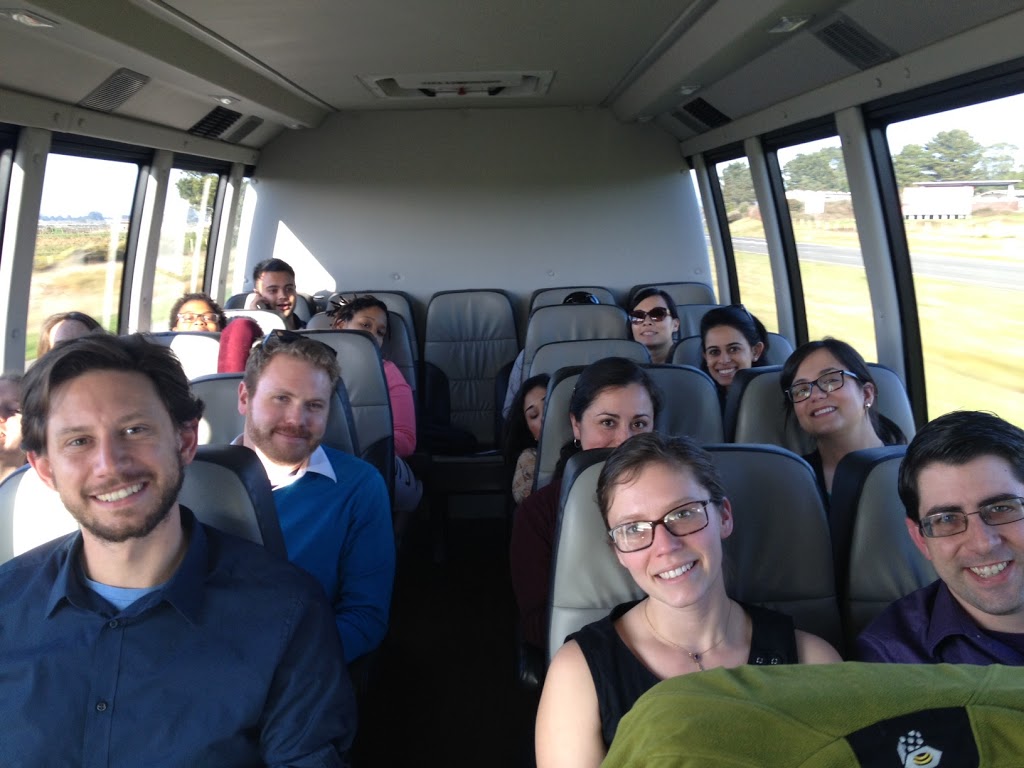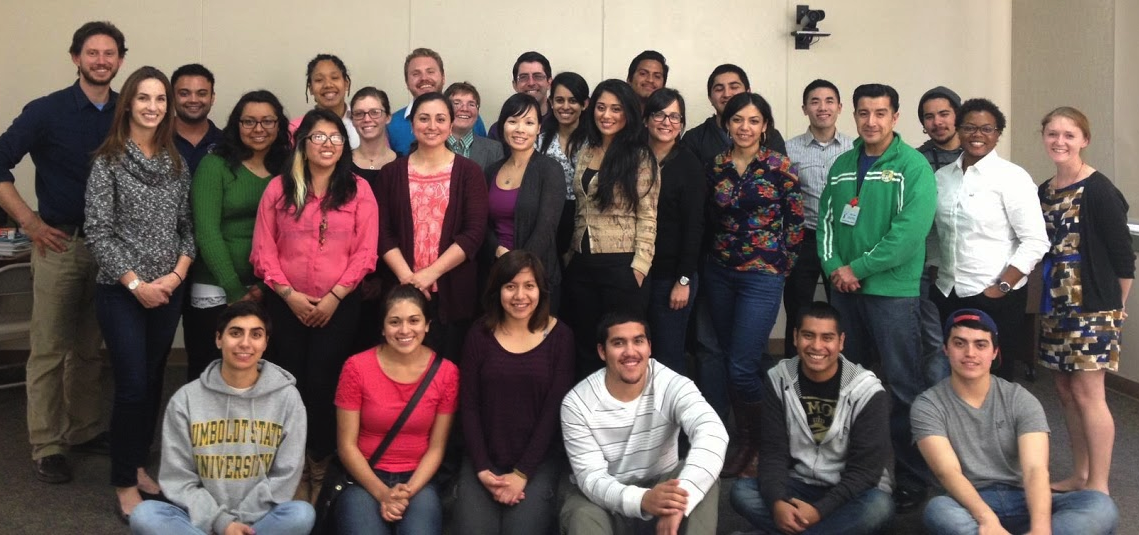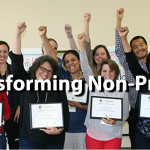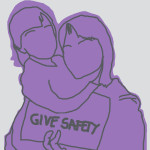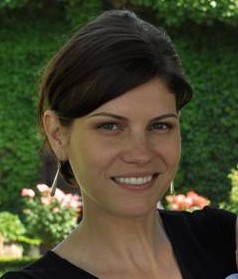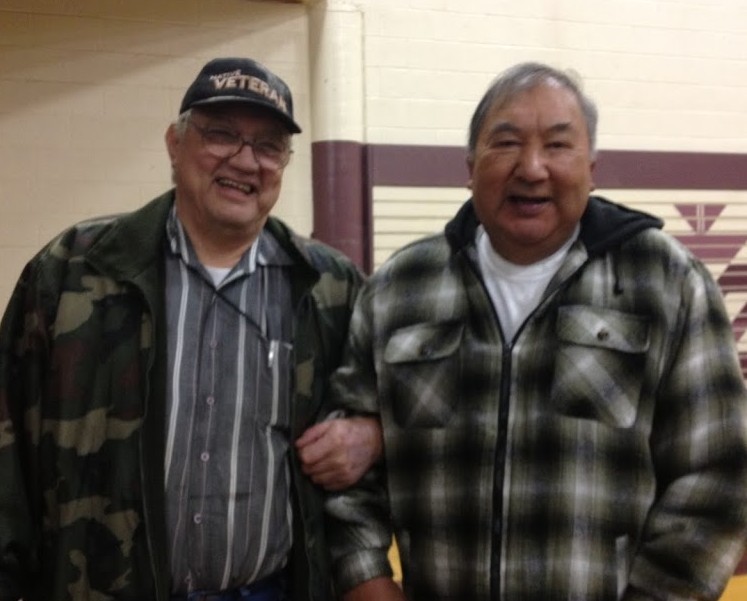
Rosa Maria Calvaho (on the right) on the Justice Bus to Indio with OneJustice staffers Monica Mar (back) and Cynthia Luna (left). All three have participated in the UCLA Law Fellows program.
Justice Bus volunteer Rosa Cavalho finds the situation in Indio a far cry from the golf courses and manicured gardens.
But she also finds smiles and hugs from the clients who are assisted by the Justice Bus clinic.
Our final National Volunteer Month guest blogger, Rosa Maria Cavalho, received her undergraduate degree from UC Berkeley and has worked as a legal advocate and labor union organizer for the last 6 years in both rural and urban parts of Northern and Southern California. Her legal and academic interests include Housing Law, Labor and Employment, and Worker Rights Activism. She will enter law school in 2014. Rosa is thankful to the UCLA Law Fellows Program, which put her in contact with OneJustice.
———————————————————
Arid, parched mountains, glittering signs reading Palm Springs, Rancho Mirage, spacious swaths of golf courses flanking hotels with manicured garden fronts and the Coachella Music Festival. These are all images easily conjured into the mind by the mere utterance of “Coachella Valley” to anyone even slightly familiar with Southern California. And though they are all images that do define this region, they only provide a silhouette to the full image that outside visitors and residents alike may not have perceived.
The city of Indio, California in the Coachella Valley lends shade and color to the silhouette. From slumlord housing and aggressive debt collections agents to workplace violations and obtaining child support, residents deal with a variety of legal challenges. In addition, they are further magnified in this desert valley due to the lack of legal services and made greater to those individuals without vehicles, where towns stand in great distance from each other and public transportation is sporadic at its best.
As an advocate for public interest work with prior experience in legal outreach in both rural and urban environments of Northern California, I was both curious and excited to volunteer with the Justice Bus Project trip to Indio. I had never actually gone out to a rural community to offer legal services. I had simply lived in a rural community and assisted in a legal office. The thought of being part of a dynamic project – justice on wheels – was precisely what prompted my curiosity and excitement.
However, it was only really during the drive I vividly gained a sense of what challenges rural communities face in accessing legal resources. By witnessing the huge expanses of sparsely populated rural areas when approaching Indio, I began to understand how much the dearth of legal services that existed here stood in contrast to the array of services accessible in the distant city of urban Los Angeles. For in an urban environment, if you are unable to access legal services in one part of the city, a hop on the metro or 30 minute drive is often sufficient to put one in touch with another legal clinic. Here, though, “hopping” on a metro train was not a possibility and 30 minutes was often how long it took some residents to get to a major supermarket.
The OneJustice experience was great because it allowed me to gain a first hand perspective over the course of two days of the significance of traveling into isolated communities and even in a small way, contributing to the lives of residents there. Going into this far flung community with lawyers and law students, being quickly oriented with the nature of legal issues faced and then delving right into interviewing clients, working with supervising attorneys to assess legal issues and provide advice or referrals, I felt privileged.
I was part of a team of people who were facilitating access to legal rights. I shared in and met so many incredible passionate advocates through this experience. And I came away with the feeling that OneJustice allowed me to fill in the silhouette of understanding I had about the Coachella Valley, painting it with the smiles of a client and her little girl, the gratitude of an elderly couple, and a hug of appreciation from a women being threatened by consumer debt lenders. Thank you!
Happy National Volunteers Month to Rosa and all the Justice Bus volunteers! You all are the heart and soul of this project!
![]() You can also bring life-changing legal services to those in need. Donate now through our secure online system.
You can also bring life-changing legal services to those in need. Donate now through our secure online system.



